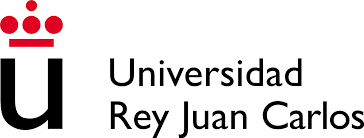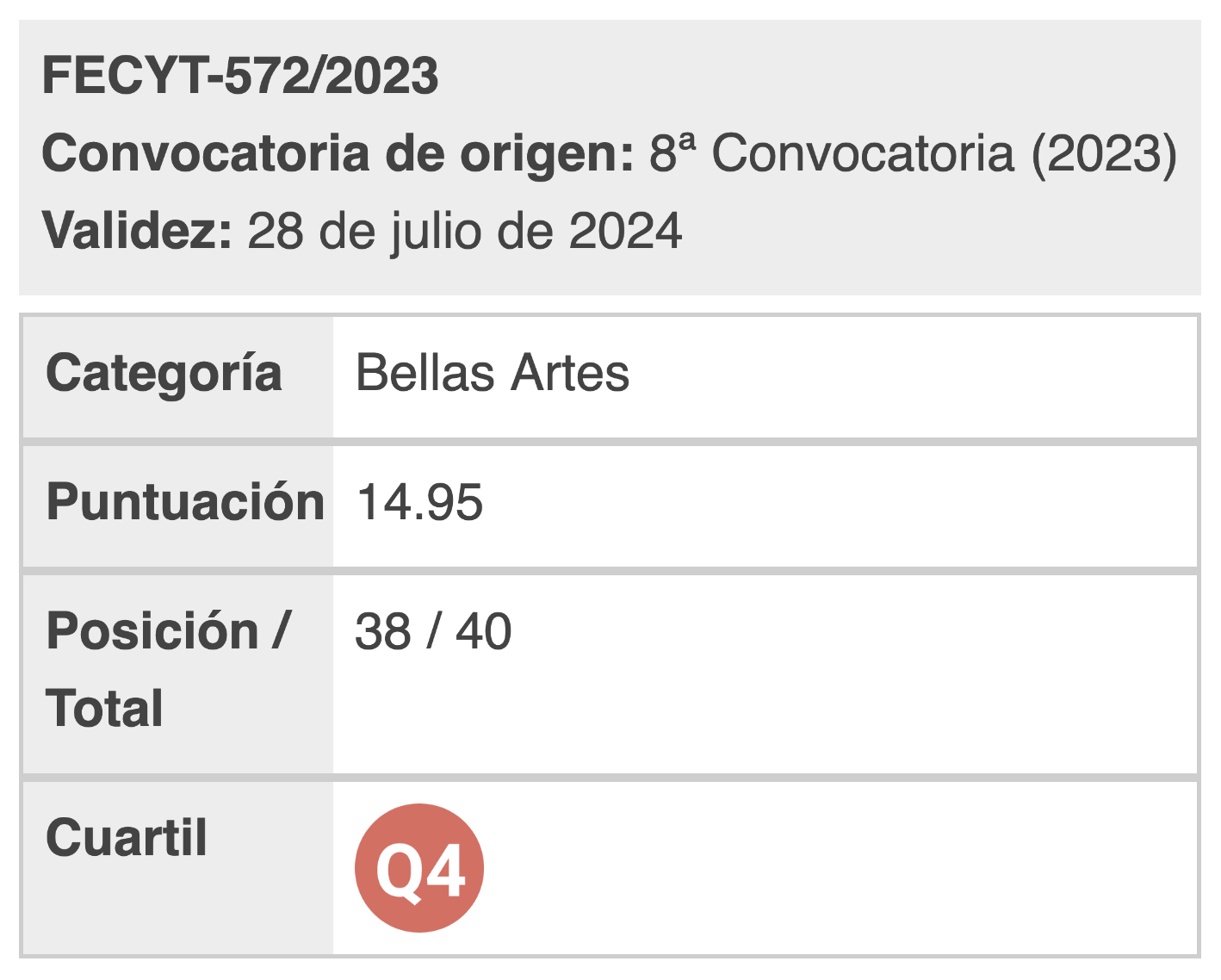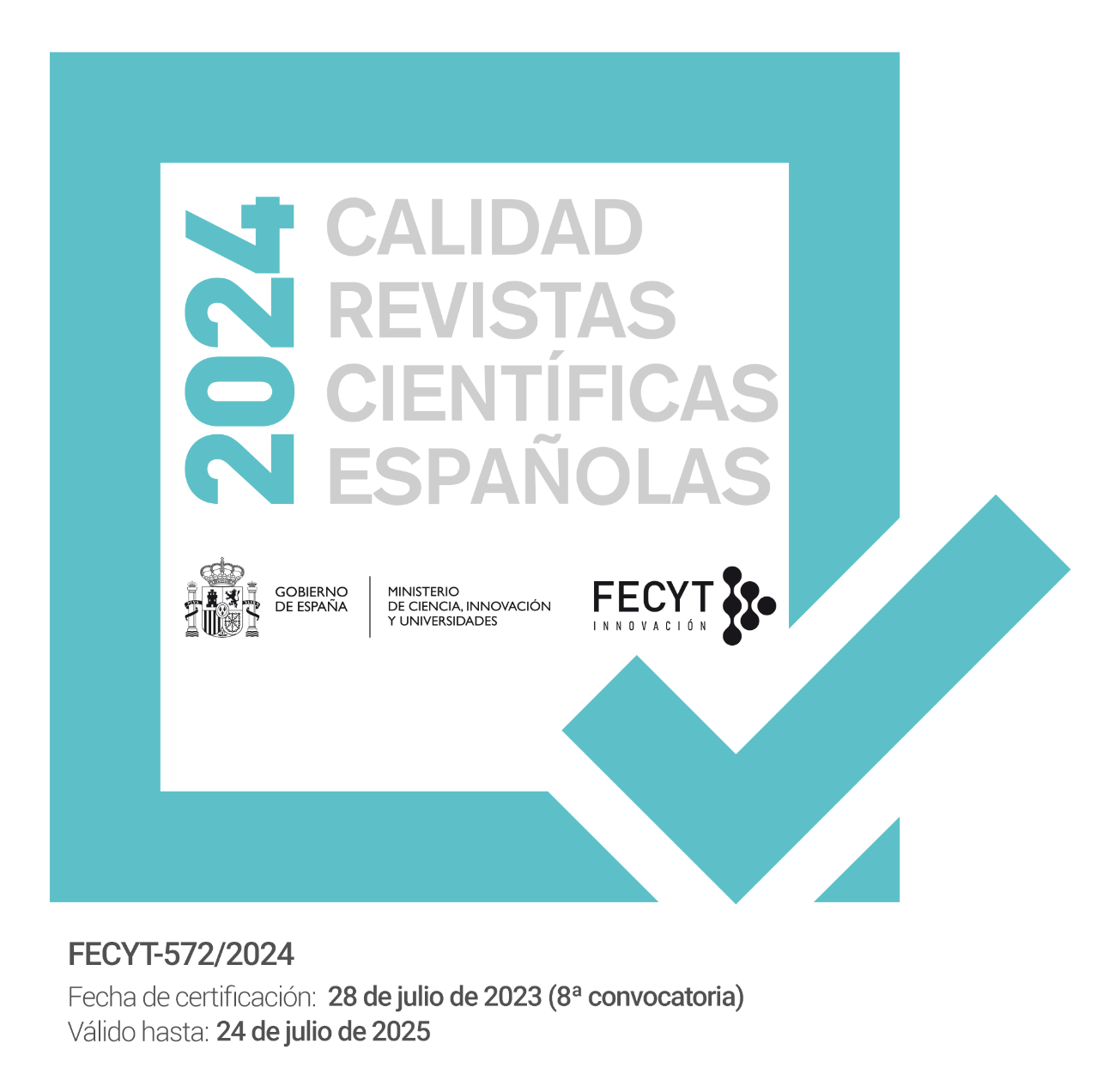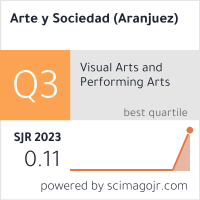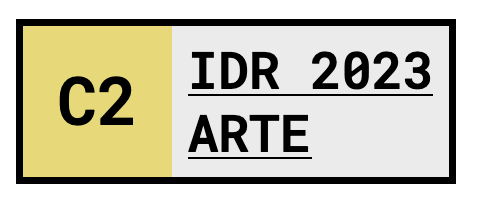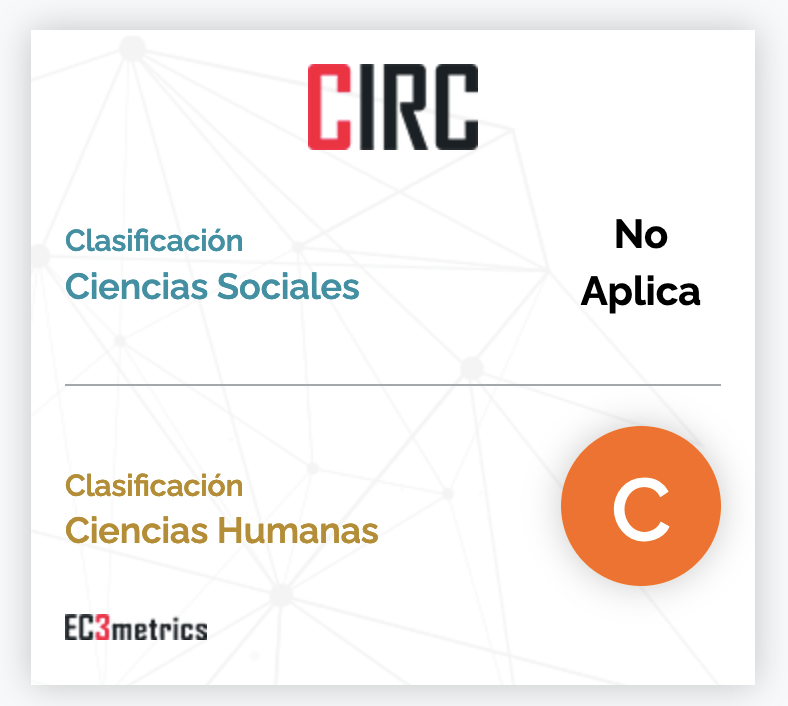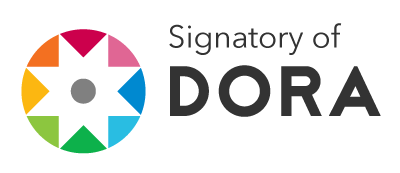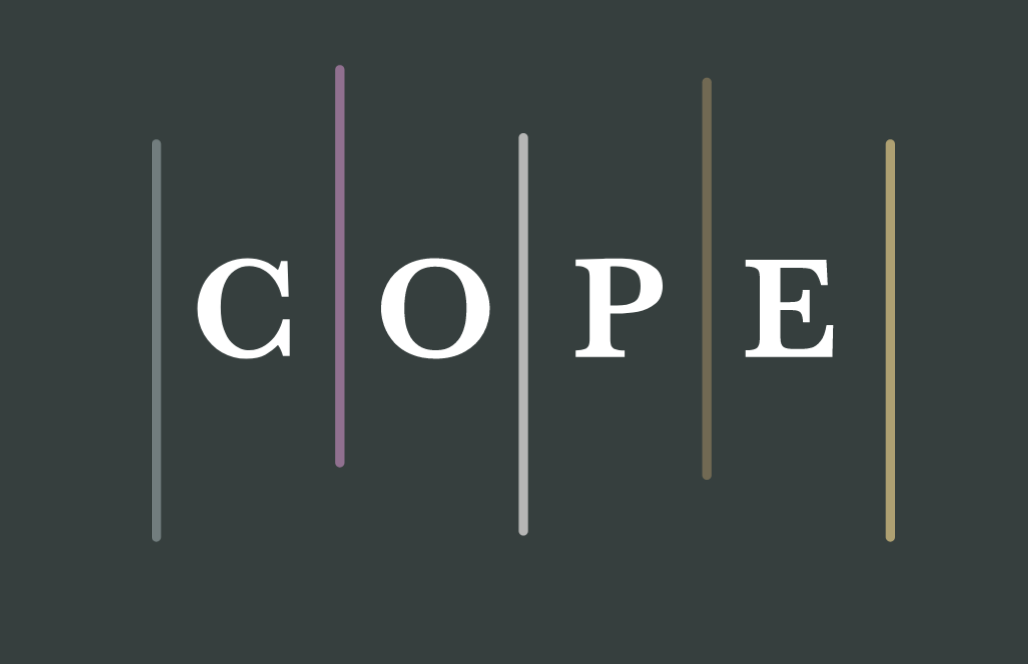Investigation of audiovisual narrative paradigms in educational environments with gifted students
Paradigms of Digital Visual Narrative
DOI:
https://doi.org/10.5281/zenodo.7654585Keywords:
Media Literacy, Video Art, digital technologies, Interdisciplinary, Artistic PracticesAbstract
The present research is developed within the need to contribute to society with tools for the media literacy of individuals and their relationship with the arts, as an answer to the new educational and technological paradigm that is taking place in Spain. We will analyze the results of an educational methodology of the media skills through video), developed in non-formal education for students of high intellectual capacities of 3rd ESO, based on comparative research.
References
Acaso, M. (2015). rEDUvolution. Hacer la revolución en la educación. Paidós Ibérica.
Álvarez, J. L., & Jurguenson G. . (2003). Cómo hacer investigación cualitativa, fundamentos y metodología. Editorial Paidós Mexicana S.A.
Andréu, J., García, A., & Pérez, A. M. (2007). Evolución de la teoría fundamentada como técnica de análisis cualitativo. Cuadernos Metodológicos N° 40.
Ausubel, D. (1963). The Psychology of Meaningful Verbal Learning. Grune y Stratton.
Ausubel, D., Novak, D., & Hanesian, H. (1978). Educational Psychology: A Cognitive View. Holt, Rinehart y Winston.
Bonet, E. (1987). Metavideo. Del estado del video, su historia y estética. En La Imagen Sublime (catálogo). Madrid: Ed. Ministerio de Cultura (Museo Centro de Arte Reina Sofía).
Brown, G., & Atkins, M. . (1988). Effective teaching in Higher Education. Routledge.
García-Ruiz, R., Ramírez-García, A., & Rodríguez-Rosell, M. M. (2014). Educación en alfabetización mediática para una nueva ciudadanía prosumidora. Comunicar, XXI (Julio-Diciembre). Recuperado de http://www.redalyc.org/articulo.oa?id=15831058003
Goleman, D. (1996). Inteligencia Emocional (4ª edición). Kairós.
González García, F. M. (1992). Los mapas conceptuales de J.D. Novak como instrumentos para la investigación en didáctica de las ciencias experimentales. Enseñanza de las ciencias: revista de investigación y experiencias didácticas, Vol. 10. Nº2, 148-158.
Gutiérrez, A., & Tyner, K. (2012). Educación para los medios, alfabetización mediática y competencia digital. Comunicar XIX (1º semestre)(38), 31-39.
Recuperado de http://www.redalyc.org/articulo.oa?id=15823083005
Mirapeix, F. (2009). La educación y la escuela en los medios de comunicación. Paper presented at the La educación y la escuela en los medios de comunicación, Cantabria.
Ortuño, P. (2014). Hacia una definición y praxis del videoarte. Cuadrivio.net, 13. Recuperado de https://cuadrivio.net/hacia-una-definicion-y-praxis-del-videoarte/
Sandoval, Y., & Aguaded, J.I. (2012). Nuevas audiencias, nuevas responsabilidades. La competencia mediática en la era de la conver-gencia digital. Icono 14, 10 (3), 8-22. doi:10.7195/ri14.v10i3.-197
Secretaría de Educación Pública. (2010). Guía de observación para la detección de necesidades educativas especiales, con o sin discapacidad, en niños de educación básica. Recuperado de http://www.conafe.gob.mx/educacioncomunitaria/programainclusioneducativa/guia-educacion-basica.pdf
Strauss, A. L., & Corbin, J. (1990). Basics of qualitative research: grounded theory, procedures and techniques. Newbury Park, CA.: Sage publications.
UNESCO (Ed.) (2011). Alfabetización Mediática e Informacional, Curriculum para profesores. Place de Fontenoy, 75352 Paris 07 SP, France.

Published
How to Cite
Issue
Section
License

This work is licensed under a Creative Commons Attribution 4.0 International License.
You are free to:
Share — copy and redistribute the material in any medium or format.
Adapt — remix, transform, and build on the material for any purpose, including commercial.
Attribution — You must properly acknowledge the authorship, provide a link to the license, and indicate if any changes have been made.
You may do so in any reasonable manner, but not in any way that suggests that you endorse or receive any endorsement by the licensor for your use.
No additional restrictions — You may not apply legal terms or technological measures that legally restrict you from doing what the license allows.

